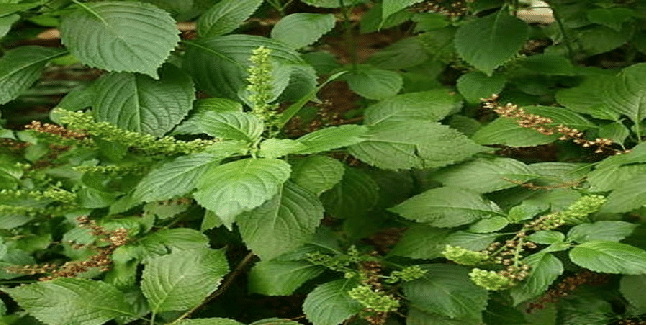DEPARTMENT OF BOTANY
MEDICINAL PLANTS
Ocimum gratissimum L.
Common Name: Clove basil.
Family: Lamiaceae
Genus: Ocimum
Species: gratissimum
Malayalam Name: Anathuasi, Attuthulasi
Tamil Name: Elumicchan thulasi, Peruntulasi
Description: Ocimum gratissimum is an aromatic, perennial herb that can grow to be 1–3 m tall. It has a strong, aromatic odor and a pungent taste.
Stem: Erect, round-quadrangular, woody at the base, and highly branched. The epidermis may peel off in strips.
Leaves: Opposite, petiolate, and with serrated margins. The leaves are elliptical to ovate in shape, and can be 1.5–16 cm long and 1–8.5 cm wide.
Inflorescence: A terminal, simple or branched raceme that is 5–30 cm long. The inflorescence is made up of verticillasters that contain 6–10 flowers.
Flowers: Small, hermaphrodite flowers that are whitish, pink, or carmine red in color. The flowers have a two-lipped calyx and a campanulate corolla.
Fruits: Small capsules that are open at the apical end.
Seeds: Globose in shape and brown in color.
Uses
It has many therapeutic properties, such as Anti-inflammatory, Antidiarrheal, Anthelminthic, Antipyretic, Gastroprotective, Fungicidal, and Hepatoprotective.
It is also used as a food seasoning. In Nigeria, it is used in making pepper soup, local rice, beans, plantain, and other delicacies.
It is used to treat kidney complaints, digestive disorders, whooping cough, fever and also used as a wash for sore throat and tonsillitis.
